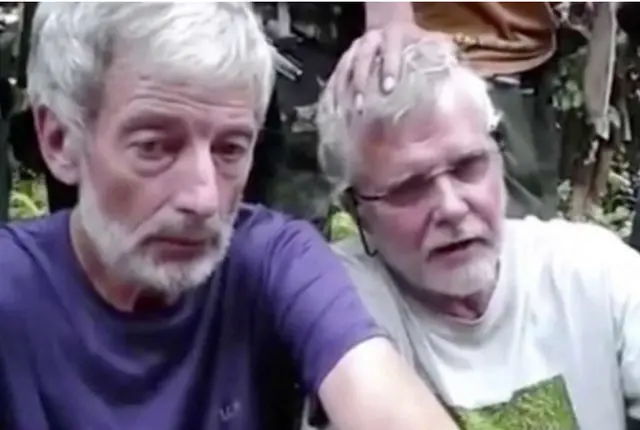The Philippines, Indonesia and Malaysia agreed on Monday to take possible coordinated actions, including sea and air patrols, to stop an alarming wave of cross-border kidnappings and boat attacks by Abu Sayyaf extremists and other outlaws.
Philippine Defence Secretary Voltaire Gazmin said no accord was signed during talks with his Malaysian and Indonesian counterparts in Manila because he wanted the administration of President-elect Rodrigo Duterte, who would be inaugurated on June 30, to formalise any such border security arrangement.
Gazmin’s designated successor, retired army Major General Delfin Lorenzana, joined the meeting at his invitation. It follows an initial meeting by the three foreign ministers last month that was hosted by Indonesia and underscored the alarm over the Abu Sayyaf’s continuing attacks despite repeated assurances of tighter security by Malaysia and the Philippines.
“The ministers raised concern over the recent incidents of kidnappings and armed robbery at sea in the maritime areas of common concern,” the defence chiefs, who included Hishammuddin Hussein of Malaysia and Ryamizard Ryacudu of Indonesia, said in a joint statement.
They reaffirmed the need and collective responsibility of the countries to address such threats, it said.
After staging ransom kidnappings of Malaysian and foreign tourists in Malaysia’s Sabah state in recent years, Abu Sayyaf gunmen and allied militants successively attacked three tugboats starting in March, kidnapping a total of 18 Indonesian and Malaysian crewmen.
Hostages Robert Hall (right) and Kjartan Sekkingstad (left) who were held hostage by Abu Sayyaf. Photo: Reuters
The captives were freed in batches from the militants’ jungle bases in the southern Philippine province of Sulu reportedly in exchange for huge ransoms. The militants have separately beheaded two Canadian hostages, who were seized from a southern Philippine marina, after a ransom deadline lapsed, sparking condemnations from Canada and a major Philippine military offensive.
Gazmin told The Associated Press by telephone that the proposed actions include setting up a database on extremists and establishing joint military command posts in designated areas. Coordinated security actions are delicate because the Philippines has a territorial claim to Malaysia’s easternmost state of Sabah on Borneo Island.
The proposals would be studied before being formalised in an agreement that may be signed within the year, he said.
A template for their coordination will be the anti-piracy actions by Indonesia, Malaysia, Singapore and Thailand that have reduced the high number of piracy attacks in the Malacca Strait to zero so far this year, Gazmin said.
“The aim is to send a warning or information to the other side which may face an imminent attack or to us when kidnap victims are about to be brought in,” he said.
The Abu Sayyaf has carried out deadly bombings, kidnappings for ransom, beheadings, piracy and extortion, and is considered a terrorist organization by the Philippines and the United Nations.
The militants still hold at least five hostages, including a Norwegian resort manager and a Filipino woman kidnapped with the beheaded Canadians in September last year and a Dutch bird watcher, who was abducted more than three years ago.
(AP)
 简体中文
简体中文

